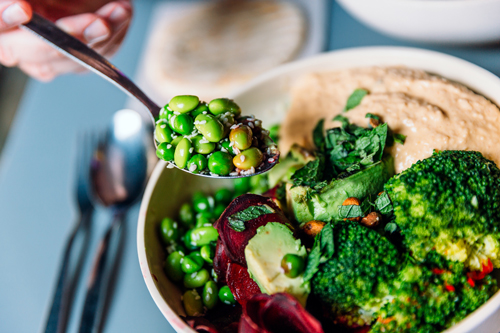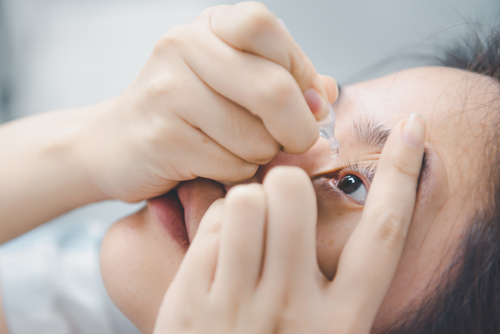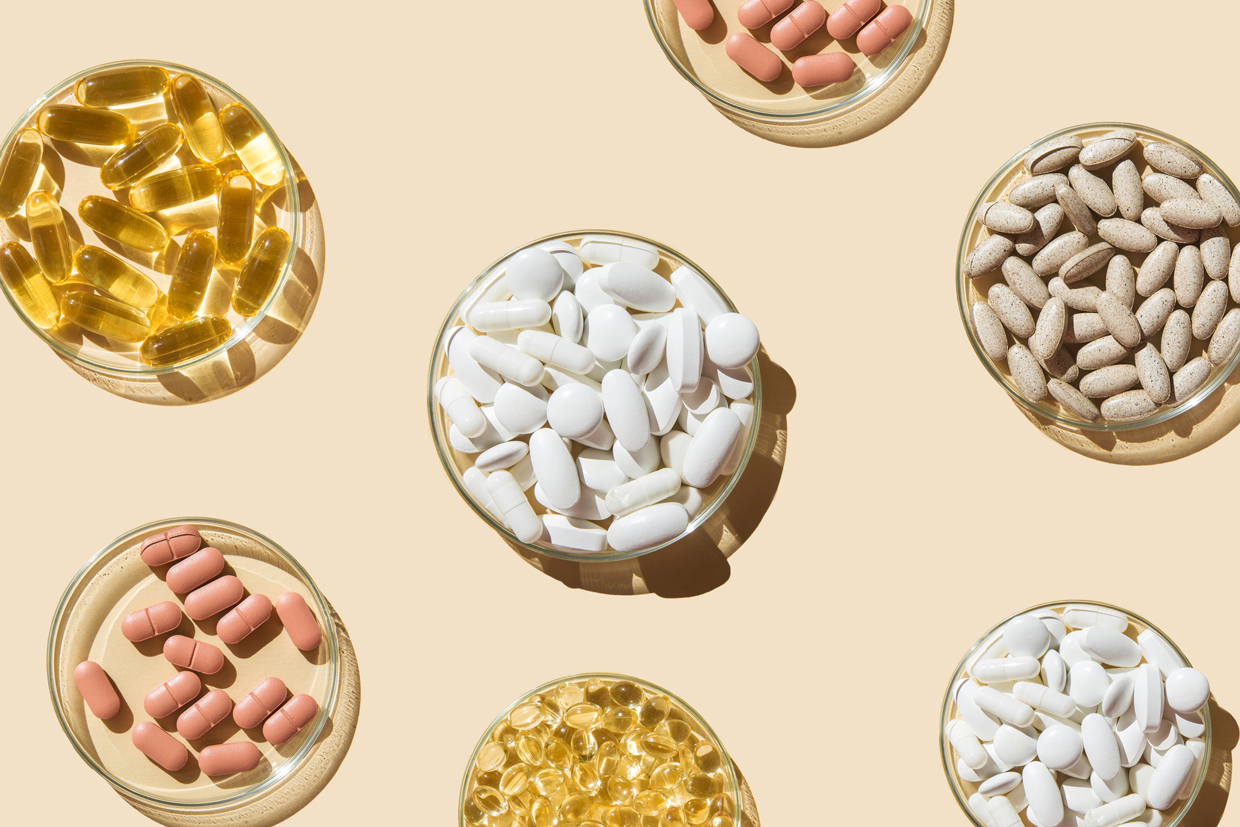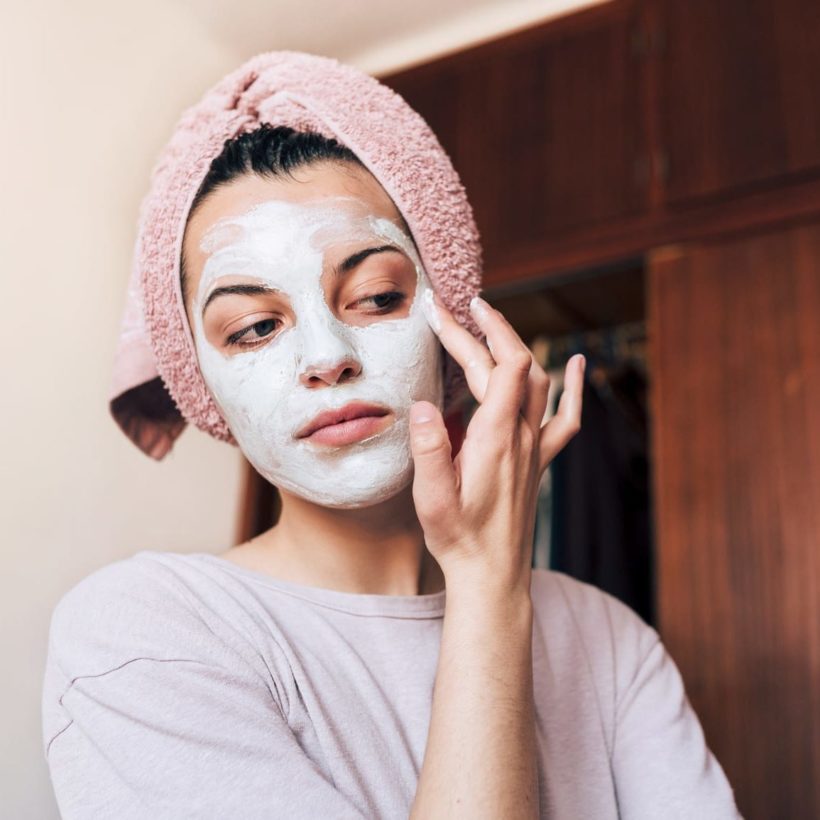A nutrient-rich diet is an important piece of the puzzle when it comes to being healthy. In fact, a healthy diet can help strengthen your bones, boost your immunity, and reduce your risk of a myriad of diseases, including diabetes, heart disease and cancer, per the Centers for Disease Control and Prevention (CDC). It also has a direct impact on your body’s largest organ: your skin.
As early as the 1700s, a doctor named James Lind learned that what we eat can affect our skin and even help prevent diseases such as scurvy, which manifest their symptoms in skin, according to research published in Nutrition Reviews. “When he sailed with British soldiers to the Americas, he found that citrus fruits could take away the gum and skin sores that soldiers were experiencing,” explains Christen Cupples Cooper, Ed.D., R.D.N., assistant professor and founding director of the Nutrition and Dietetics Program at the College of Health Professions at Pace University. “The vitamin C from limes helped to cure these sores, which were the symptoms of the disease known today as scurvy.”

Meet the Experts
Christen Cupples Cooper, Ed.D., R.D.N., is an assistant professor and founding director of the Nutrition and Dietetics Program at the College of Health Professions at Pace University.
Brendan Camp, M.D., is a New York City-based dermatologist at MDCS Dermatology.
Marisa Garshick, M.D., is a dermatologist at Medical Dermatology & Cosmetic Surgery (MDCS) in New York.
Deanne Mraz Robinson, M.D., is a dermatologist with Modern Dermatology of Connecticut.
Just like other vital organs in your body, your skin needs nutrients in order to optimally perform its functions, explains Brendan Camp, M.D., a New York City-based dermatologist at MDCS Dermatology. Diet is one, albeit important, piece of the puzzle when it comes to skin health. (To note, there are many other factors that play a role, including environmental exposure, proper hygiene, and genetics.)
If you’re looking to improve the health of your skin, make sure you’re not deficient in important vitamins and minerals. Here is a look at what can happen to your skin if you are:
Vitamin A
If you’re a fan of retinol, you probably already know the importance of vitamin A for skin health. One of the most touted topical skincare treatments is vitamin A in the form of retinol. “Vitamin A is a key nutrient for skin health. It can be found in the form of beta-carotene in foods such as butternut squash and carrots,” says Cooper. “However, its most absorbable form is found in low-fat dairy products.” Fortunately, a vitamin A deficiency is rare in developed countries. However, signs that you’re running deficient include conditions such as eczema, dry eyes, and trouble healing from wounds.

Vitamin D
Vitamin D is known to be important for overall health and some medical conditions, but is also important for the skin, notes Marisa Garshick, M.D., a dermatologist at Medical Dermatology & Cosmetic Surgery (MDCS) in New York. “Since vitamin D production can occur with sun exposure, those who live in areas with limited sun exposure may be deficient. The solution is not to go out in the sun, but rather to take an oral supplement,” she says. “There may be some benefits for the hair with optimal levels of vitamin D as well.”
Vitamin C
Fortunately, vitamin C deficiencies are quite rare, as it is quite easy to glean this nutrient from a regular diet. Foods high in vitamin C include citrus fruits, bell peppers and tomatoes. Low levels of vitamin C, however, can lead to scurvy, warns Camp. “This condition is characterized by skin changes such as bruising, bleeding gums, and skin breakdown,” he says.

Omega-3 Fatty Acids
Foods rich in omega-3 fatty acids help reduce skin inflammation that could potentially prevent acne, eczema, and psoriasis, says Garshick. That’s why omega-3-packed foods such as salmon, flax seeds, chia seeds, walnuts, almonds, and soybeans, have a rightful place in every diet. “Omega-3 fatty acids are also thought to help increase hydration in the skin,” she says. “While there are some studies to show benefits of omega-3 fatty acids on the skin, further research is needed before specifically using these as a treatment for skin conditions.”
Iron
Iron deficient anemia can present as pale skin as well as cause pruritus (itchy skin), according to Deanne Mraz Robinson, M.D., a dermatologist with Modern Dermatology of Connecticut. “If we see accompanying symptoms of fatigue, pale skin, dizziness, fast heart rate, we may suspect anemia. This can be confirmed with labs that require a basic blood draw looking at hemoglobin and ferritin levels,” she says. “Mild cases of anemia can be treated with a diet rich in iron. This includes lean meats, leafy greens like spinach and legumes, and taking iron supplements. Blood transfusions may be required for more severe cases.”

Zinc
“Zinc is a required nutrient for cell membrane repair, cell growth, and overall healthy skin. Low levels of zinc is associated with delayed wound healing, fragile or thinning hair, and dermatitis,” says Robinson. “Luckily, zinc is readily available in a variety of animal and plant sources. Think: oysters, beef, crab, pork, pumpkin seeds, sesame seeds, cashews, and lentils.” She recommends discussing the possibility of adding a zinc supplement to your regimen with your doctor. This can be a helpful way to boost results and support the overall immune system, especially during periods of illness.







